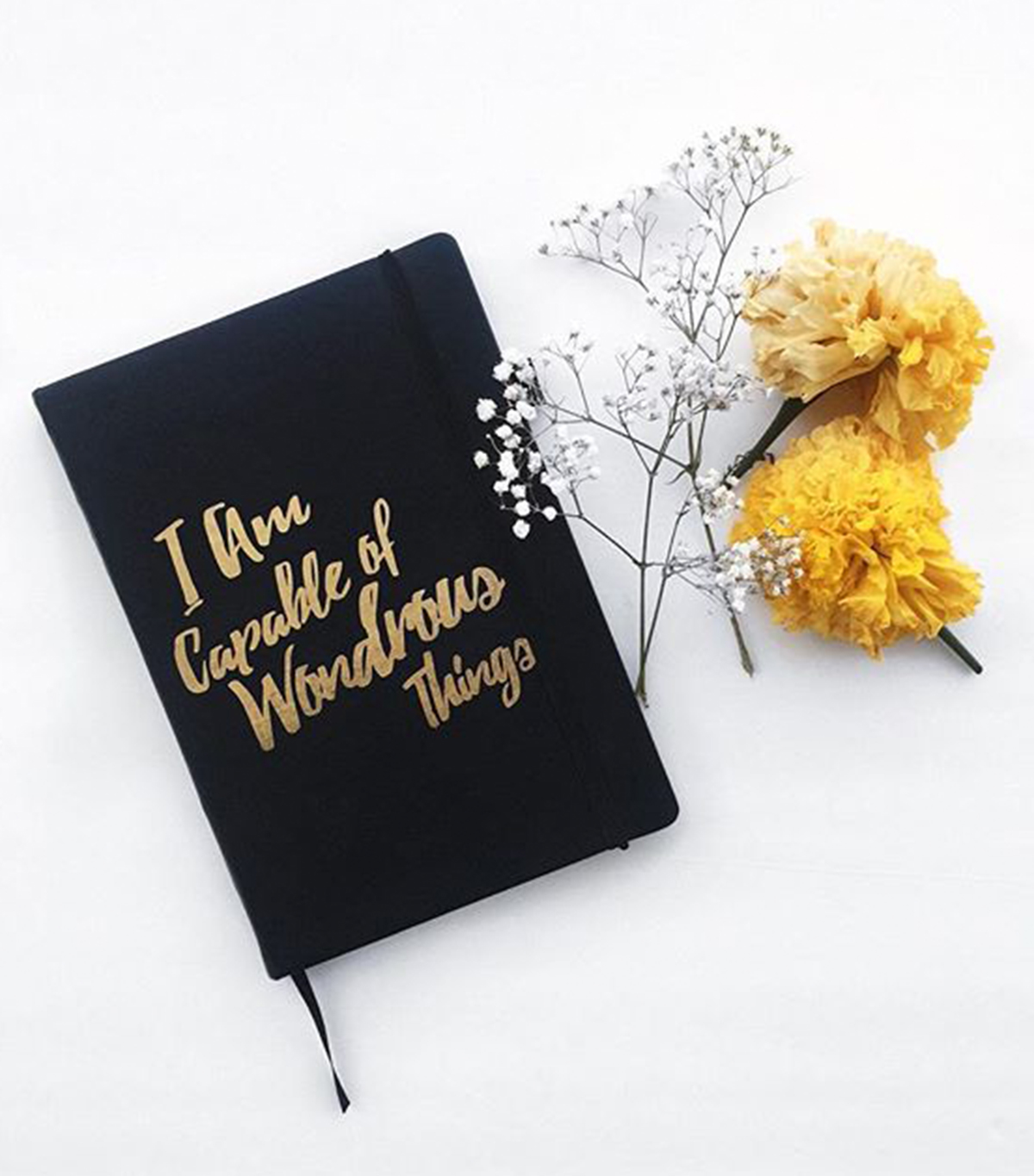I Tried Gratitude Journaling to See How It'd Make Me Feel


I write for a living. As a blossoming editor, writing has consumed countless hours of my life. Alternatively, when I think back on the amount I've written for myself, it only takes up a mini portion of those hours. I'm not exactly sure why. I guess it's because I'm constantly trying to keep up with life's demands. Oftentimes, prioritizing my own headspace and writing down my thoughts in the midst of the noise of the world gets neglected. It's something I'm working on. So I decided to start gratitude journaling.
You might ask: What is gratitude journaling? I wondered the same thing before I delved into the practice and learned a lot from these nuggets. For starters, it's something that we all deserve. I kept a tall pile of journals stacked on my shelves as a young girl. However, the act of journaling is not juvenile, even though I've slacked on the practice since the sweet days of my childhood.
"Journaling is very similar to meditating in that there is no way to be 'bad' at it," Heather Silvestri, Ph.D., a New York City–based clinical psychologist told Byrdie. "These are not performative activities, and there really isn't any particular goal other than to be as present as possible. Knowing your own particular psychological process and feeling a sense of agency over your thoughts and feelings is something everyone can learn to do."
The benefits are actually endless. "Journaling confers a sense of agency over your thoughts and feelings," Silvestri continues. "It can also enhance your understanding as to why a particular issue is troubling you and help you sort out a conflict or dilemma. So the process of journaling is useful as a mental exercise of agency and the content of what you journal provides psychological information. It's like a psychic Polaroid snapshot of your mind in real time."
The Benefits of Gratitude Journaling Are Scientifically Proven

Several studies have shown that practicing gratitude through journaling will make you a better, healthier person. And it's a simple fact that sleeping well is so critical in our lives. A 2011 study in Applied Psychology: Health and Well-Being found that writing in a gratitude journal will help you sleep better and longer. On a more emotional level, practicing gratitude can greatly improve the way you see yourself. A 2014 study published in the Journal of Applied Sport Psychology says that gratitude journaling will lower the chances of self-comparison and improve your self-esteem. The last scientifically backed fact I want to bring up is how critical expressing gratitude is for your mental health. Research shows that gratitude journaling can increase strength and allow you to move past trauma. In 2003, a study in the Journal of Personality and Social Psychology showed that practicing gratitude built up the resilience and strength of those suffering from the terrorist attacks on September 11.
My Process of Gratitude Journaling

I didn't designate a set time to practice gratitude journaling because of the simple fact that I didn't want to limit myself. I wanted to express gratitude whenever I felt compelled to write. On the first day, I picked up my journal in the evening. I turned on my room's dim light to relax my nerves and lit a candle—a nighttime ritual that allows me to ease into relaxation mode. I wrote down the things I was thankful for that day. It was as simple as my morning workout and getting a smoothie before work. On one day, I even wrote that I thanked God for opening my eyes up to wake up in the morning. I always start my journal entries with what I'm grateful for and then let the rest of my thoughts take it away.
Another time, I journaled in the morning. There's something about being up early before everyone else that makes you feel like you're winning the day. However, on that day, I literally wrote a sentence. And it was about something I was grateful for that happened the night before. It doesn't matter how long or short your journal entry. The art of getting in touch with my consciousness and staying connected to my thoughts made me feel so centered.
I switched off between gratitude journaling in the morning and night. I found that both times had a positive effect on my mood. I'm a perpetual overthinker, so before writing anything else, writing for myself was a healing activity for me.
How Gratitude Journaling Cured My Self-Doubt

The cloudy layers of my mind have made me feel so off-balance lately. I am the type of person who is constantly striving for excellence and aiming for something that feels close to perfect. As you can imagine, my mind is racing at all times. The simple act of writing down my thoughts was so therapeutic for me. Naturally, it's become a common habit of mine. Gratitude journaling puts me in touch with myself and quiets all the voices, noise, and demands around me trying to steal my attention.
If you're feeling a little distant from yourself. I highly recommend this practice. It's allowed me to find beauty in the struggle, even if it's the smallest thing.
Now, read about the five things to remember if you want to start journaling.
This article is provided for informational purposes only and is not intended to be used in the place of advice of your physician or other medical professionals. You should always consult with your doctor or healthcare provider first with any health-related questions.
